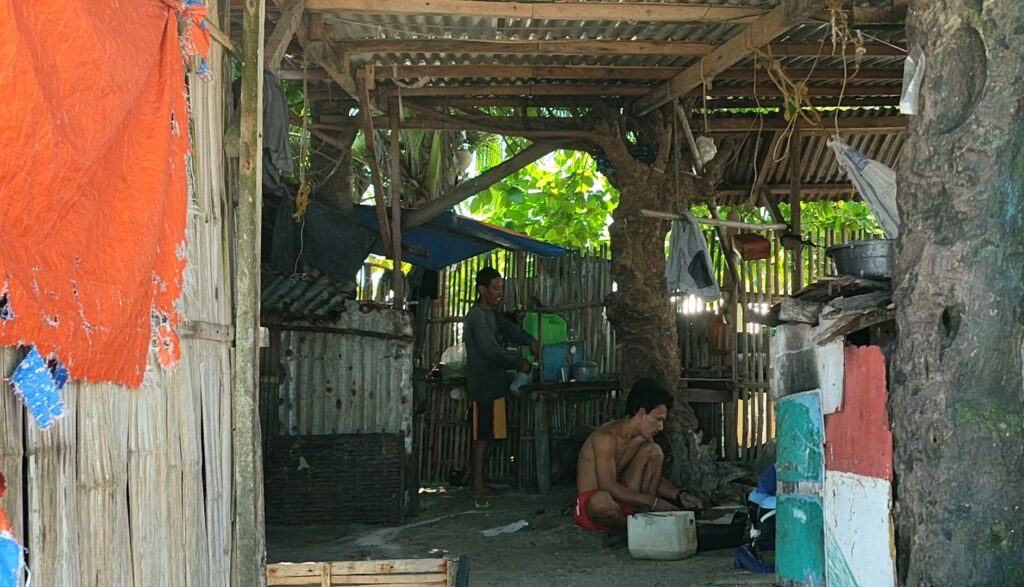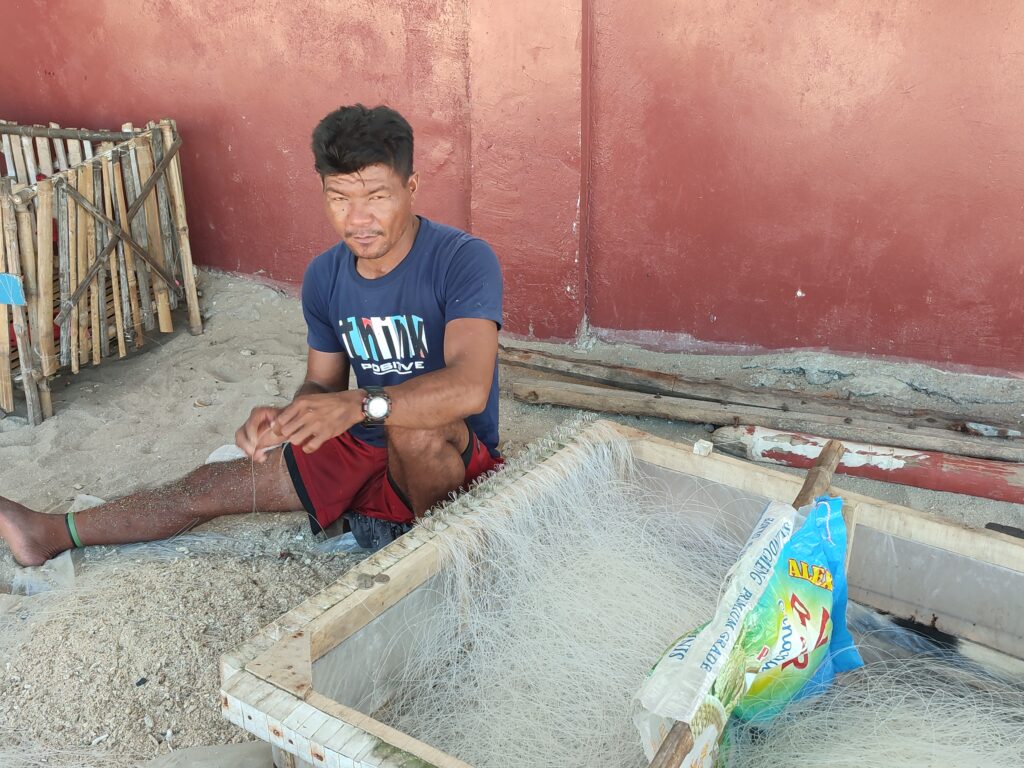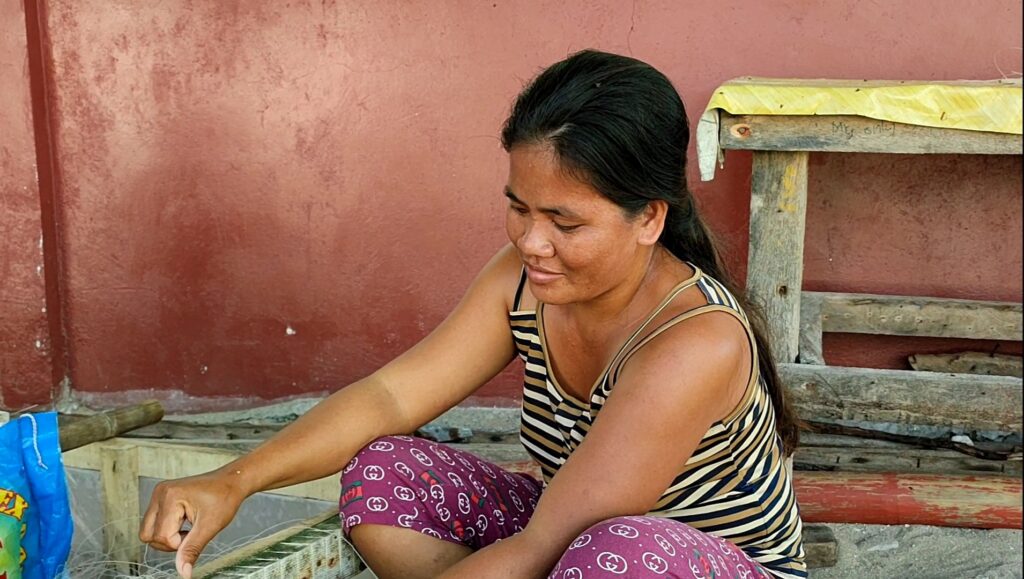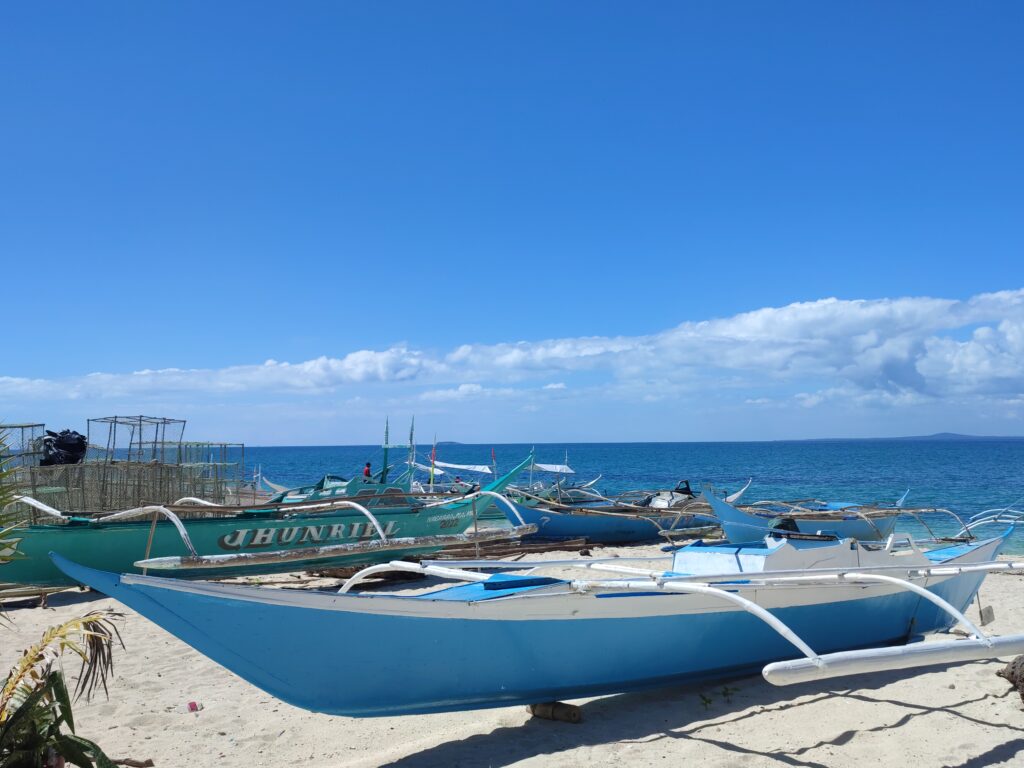Beneath the crystal-clear waters of Placer, Masbate’s hidden gem – Nagarao Island, there is a secret that most tourists and visitors do not see.
As a 2nd class municipality in the province of Masbate, locals mostly live off from offering rich seafood, along with the abundance of aquaculture.
Nagarao Island, as one of those 35 barangays in the locale, is more or less eight kilometers away from the mainland and can be reached by boat in around thirty minutes.
Aside from being a ‘developing’ tourist attraction, Nagarao island and its more than 800 residents spend their daily living through fishing and squid harvesting, cooking seafood for visiting tourists, and waiting for the vessel that brings one of their daily necessities to the island – 𝙬𝙖𝙩𝙚𝙧.


Within eight kilometers away from the mainland, people living here are used to having little to no water at all, depending on one boat that ships their clean water at a price of Php10 per container.
“Sa mainland galing (ang tubig), tag-sampu po ‘yung isang container. Yun ‘yung ginagamit namin panlaba, panghugas,” Babylyn Salondagit said in an interview with Bicol.PH.
Salondagit has lived on the island ever since she was little. Right now, she is a barangay health worker (BHW) and the barangay nutritionist.
Aside from the daily ration of water, the local government of Placer also has a water tank allotted for them, which according to most of the residents was quite insufficient for all of them living within the area.
As an alternative, most of the families fill their own containers with rain water whenever it rains.
Aside from clean water which has always been an issue for Nagaraoenos, their consumable 𝙚𝙡𝙚𝙘𝙩𝙧𝙞𝙘𝙞𝙩𝙮 is also a problem.
According to some of the residents, the National Power Corporation (NAPOCOR) frequently visits the island and drops off their generator set for them to have electricity every day from 6 p.m. to 10 p.m.
After this time frame, the electricity was initially cut-off and they shall wait for the next day to continue charging their equipment.
Their 𝙢𝙚𝙙𝙞𝙘𝙖𝙡 𝙣𝙚𝙚𝙙𝙨 are also on the line as there is only one circulating nurse that comes from the mainland and visits the island by schedule.
The residents shall contact the nurse prior to the visit if they are in urgent need of check-up – hence, still referring them to hospitals in Masbate despite critical situations.
Going back to the island’s main livelihood, Dondon Desabille, a local fisherman, shared to Bicol.PH that his Php700 earning per day mostly revolves on his boat’s crude oil and the fish he would catch weighed smaller this time around.
His 30 years on the island was always spent through fishing which he and his family depended on.
From the fisherfolk, the locals also perceived the hard work of their earnings.
A real connection for Lourdes Arigo, 20 years old, as she helped her family by cutting and making the baits for the fishes.




She told Bicol.PH in an interview that despite finishing senior high school, she still wishes to finish college and get a degree – but for the meantime, 𝙛𝙞𝙡𝙡𝙞𝙣𝙜 𝙩𝙝𝙚𝙞𝙧 𝙨𝙩𝙤𝙢𝙖𝙘𝙝 𝙞𝙨 𝙢𝙤𝙧𝙚 𝙞𝙢𝙥𝙤𝙧𝙩𝙖𝙣𝙩.
Despite the residents’ current situation, most of them still intended to stay on the island as their livelihood depends on the sea, and their families might not want to adjust again if they’ll live on the mainland.
The promotion of Nagarao island’s tourism can boost Placer’s inner grounds for tourists and visitors. Thus, may this also be an eye-opening experience to those that could see the difference within these isolated islands, a reality everyone could see but only few cared about.
In a world where positivity can often be mistaken into resiliency, may there be hope that these linings can give light to the endearment of having not just the side of beauty, but also the internal misconceptions that lie within this paradise. | Danica Roselyn Lim


